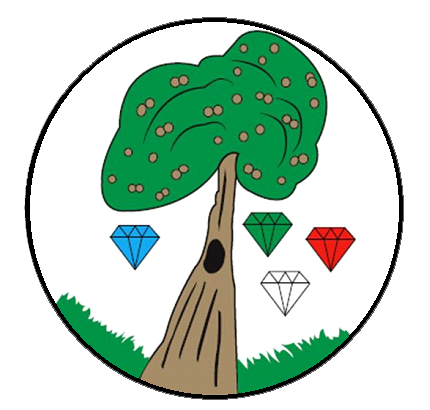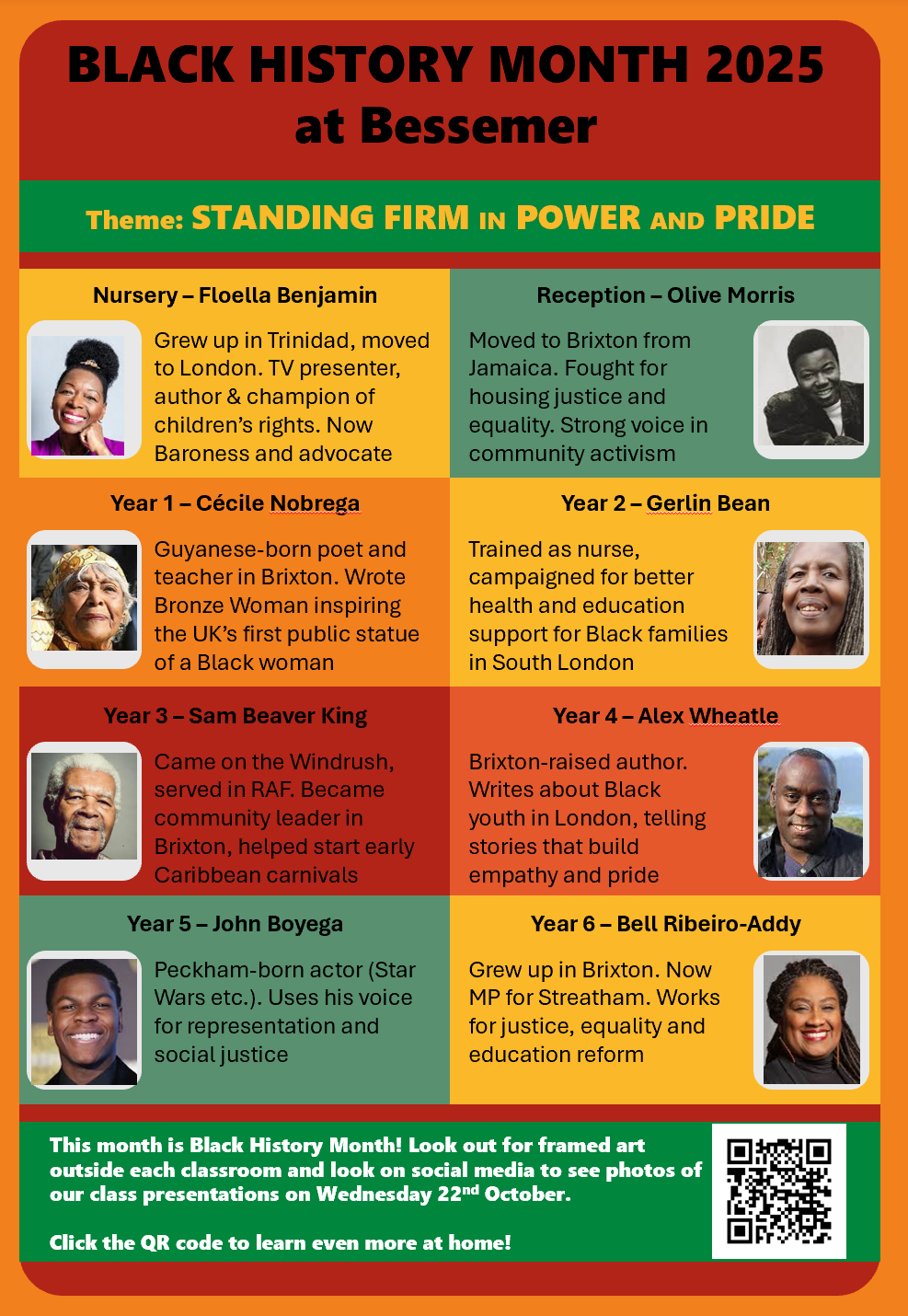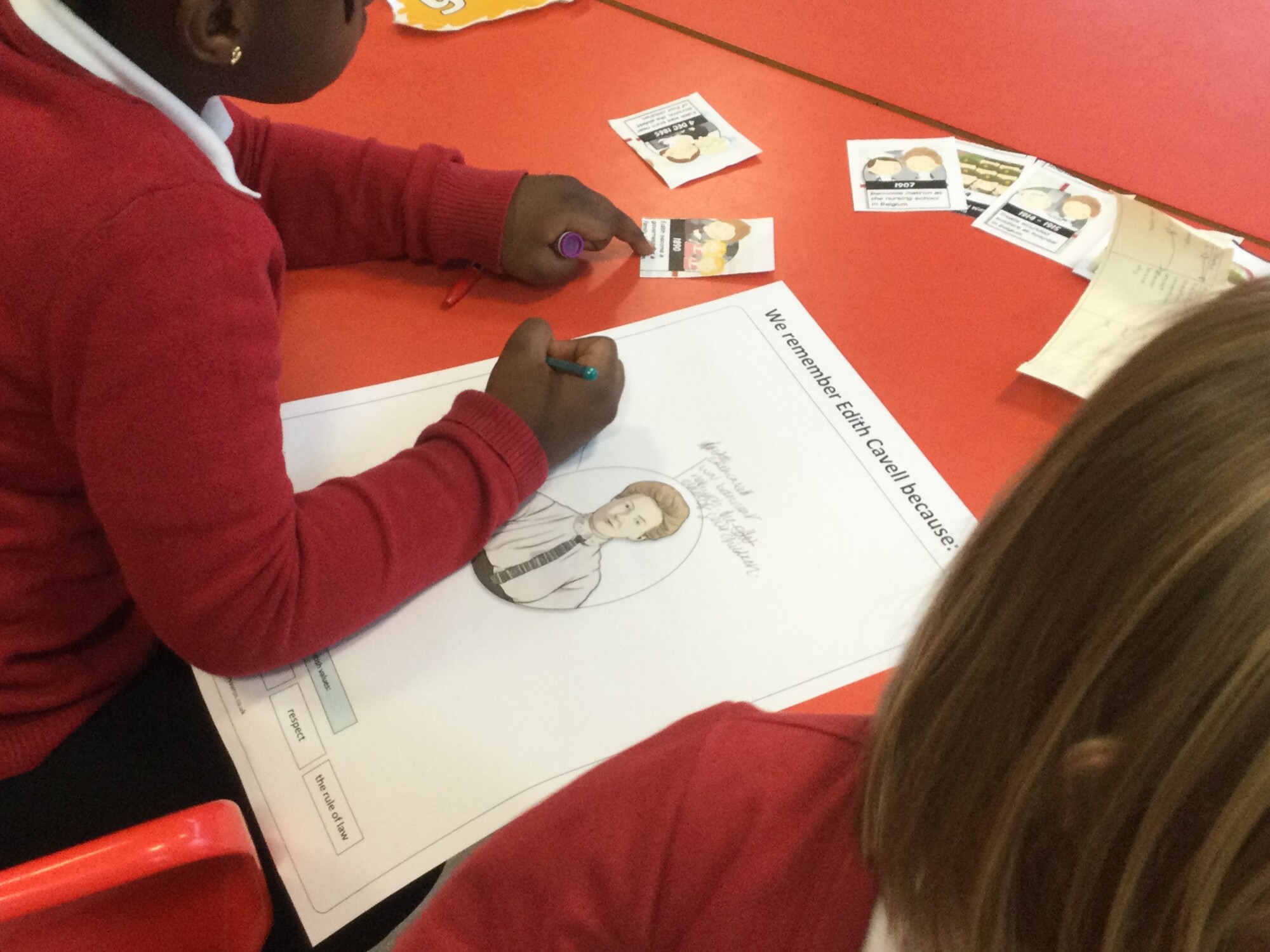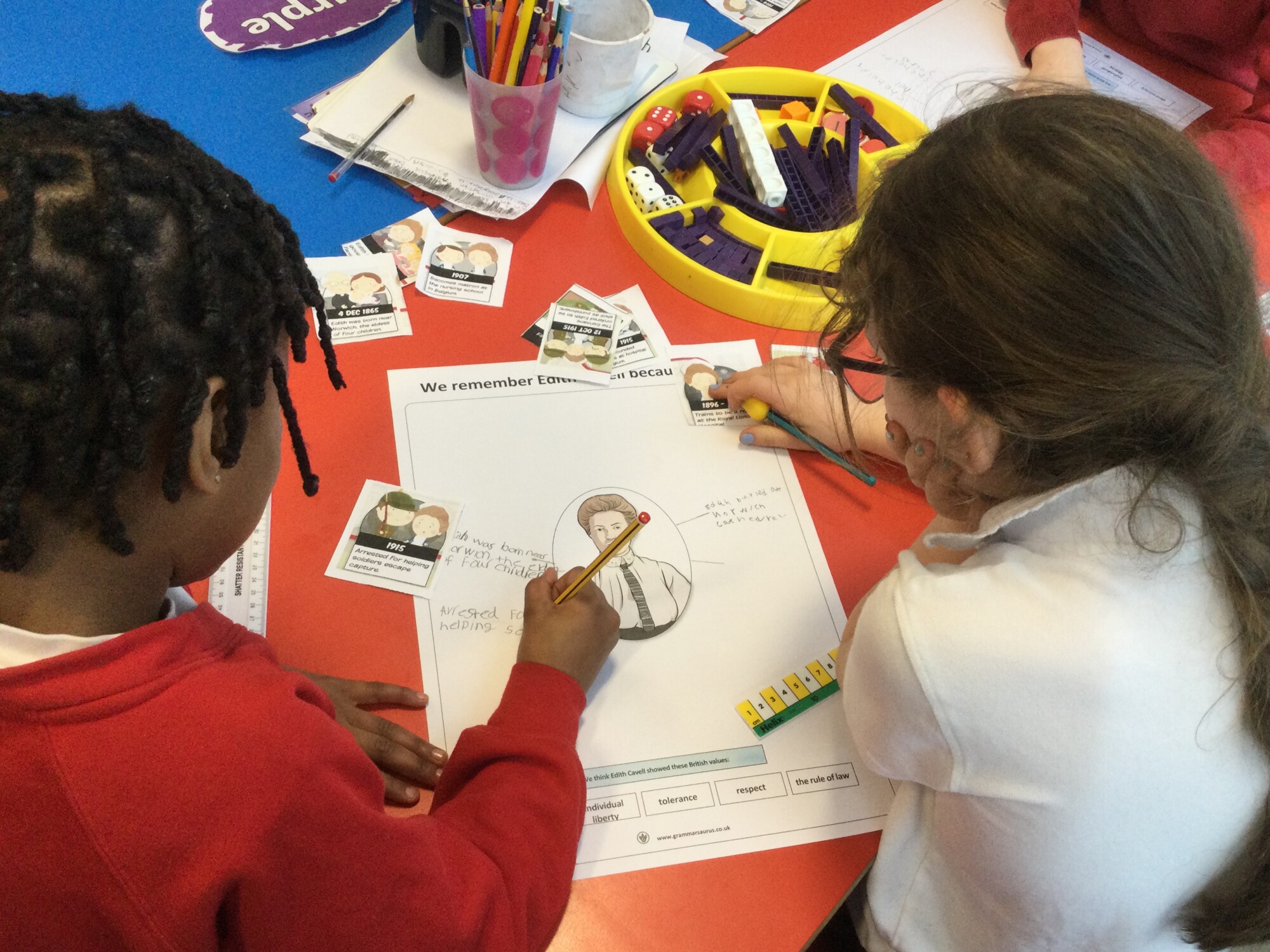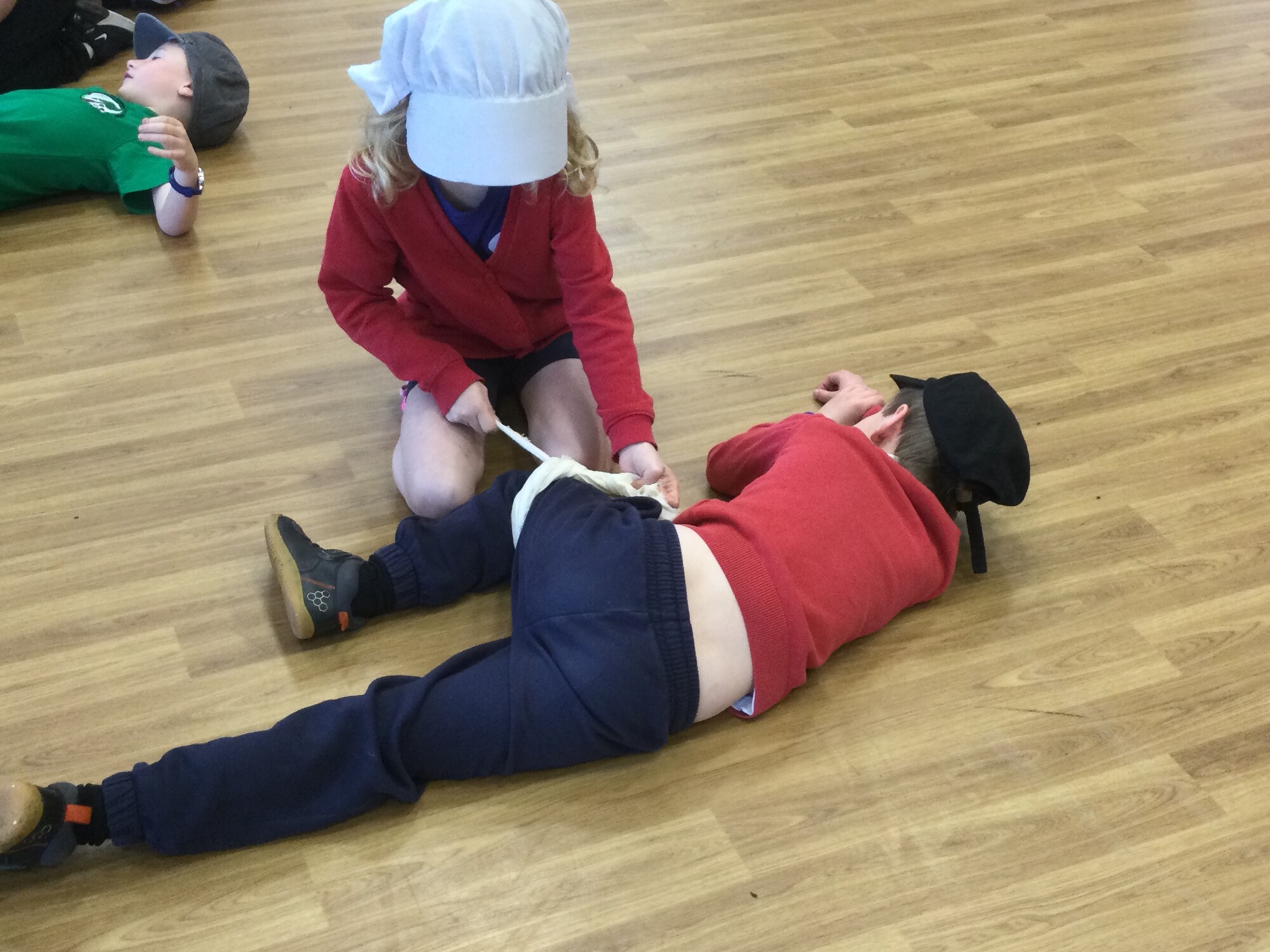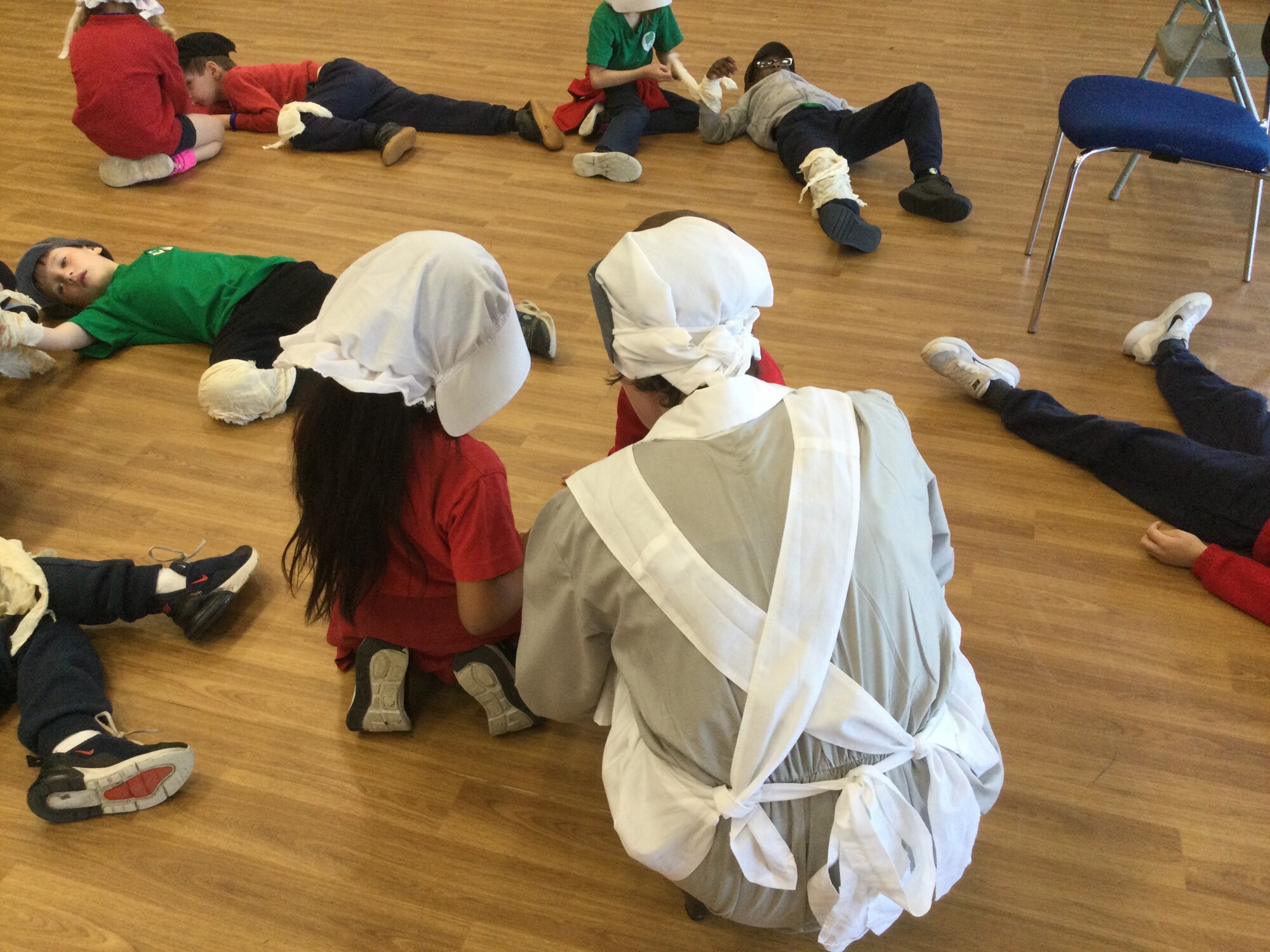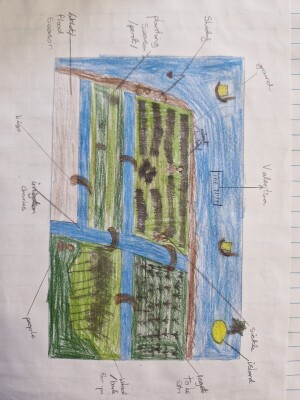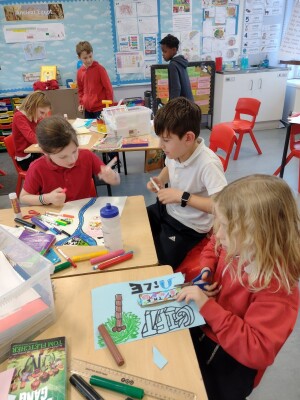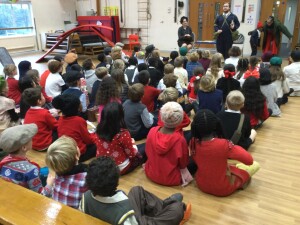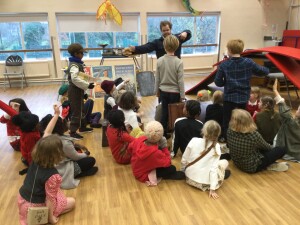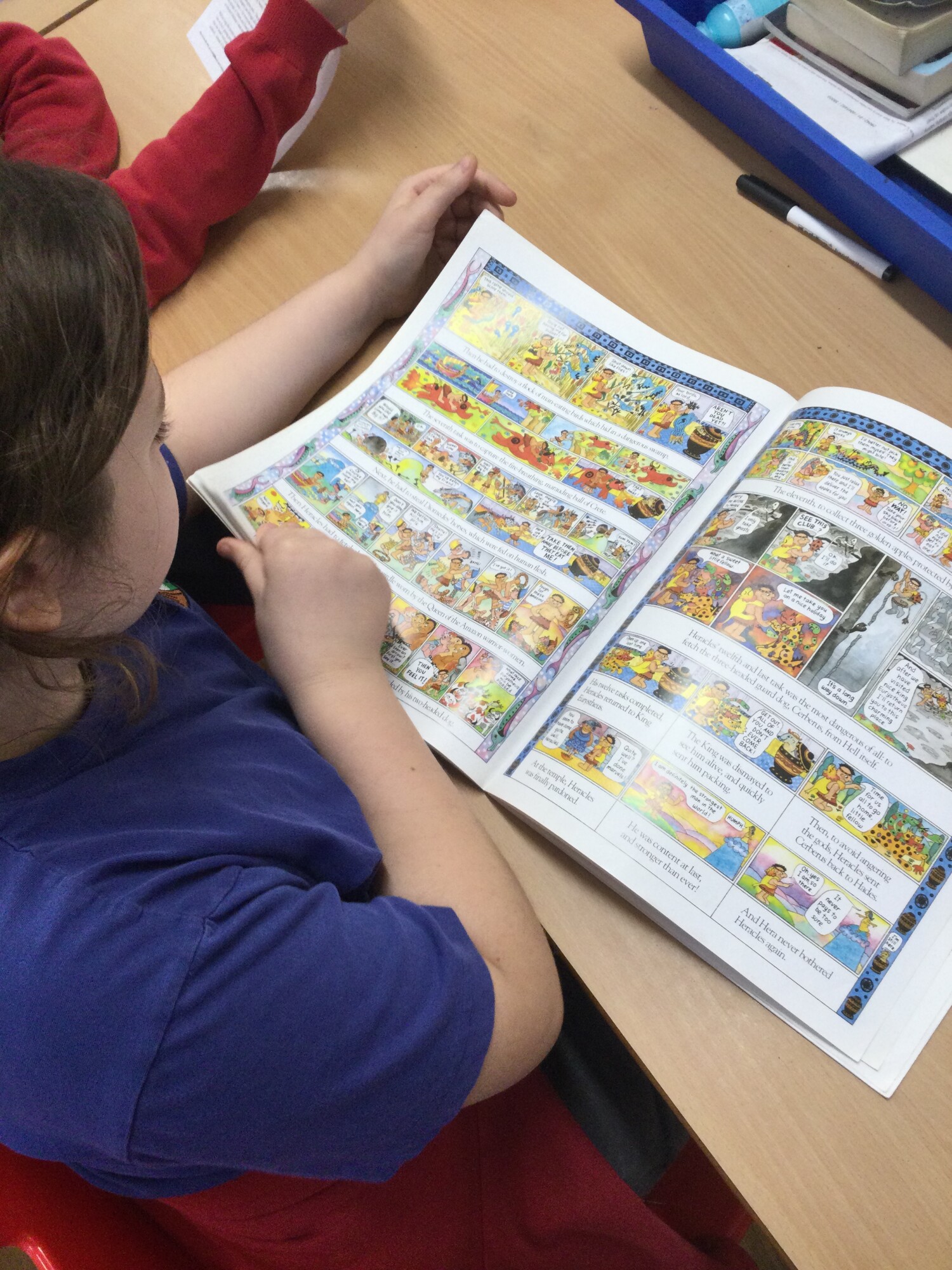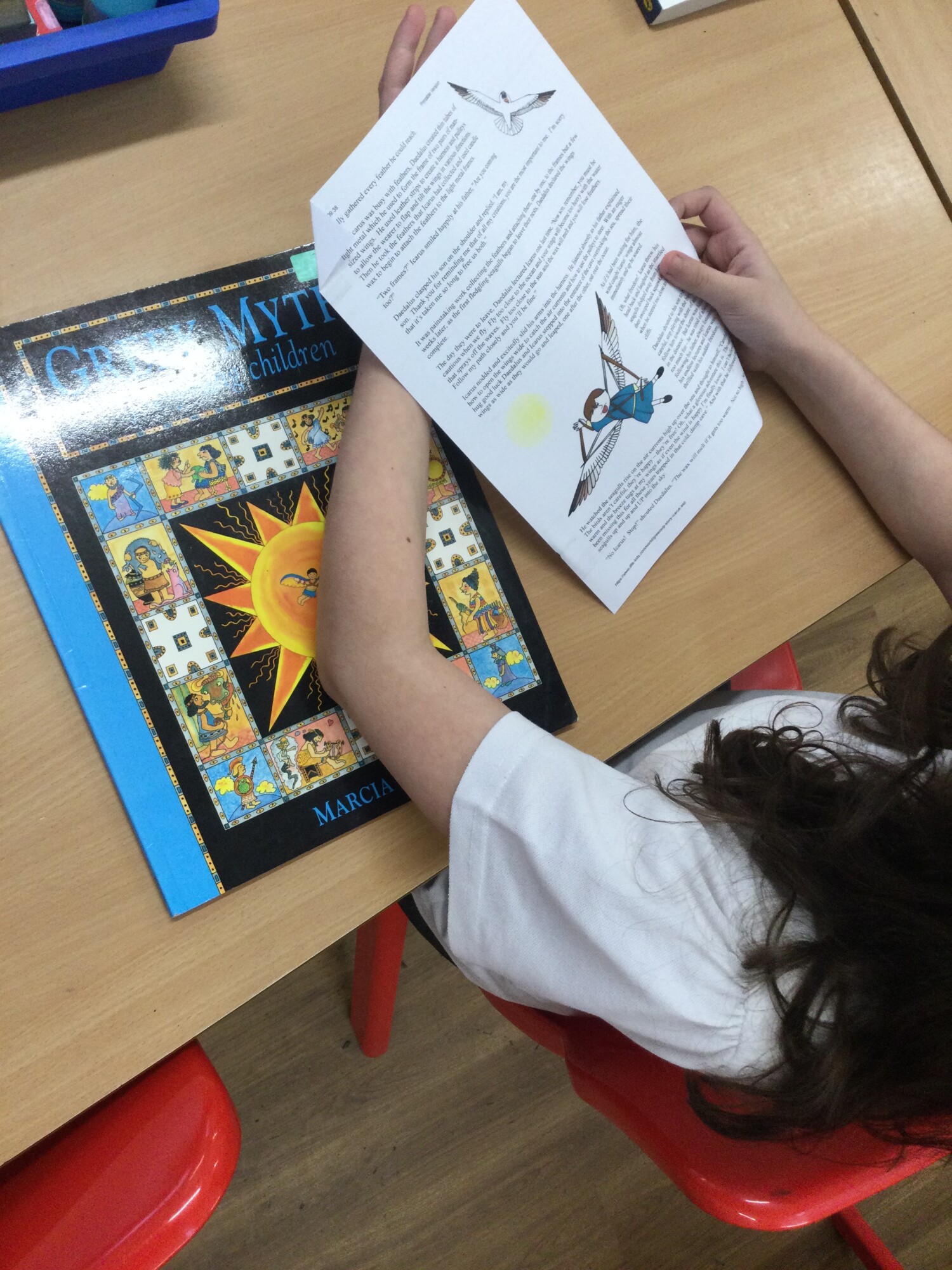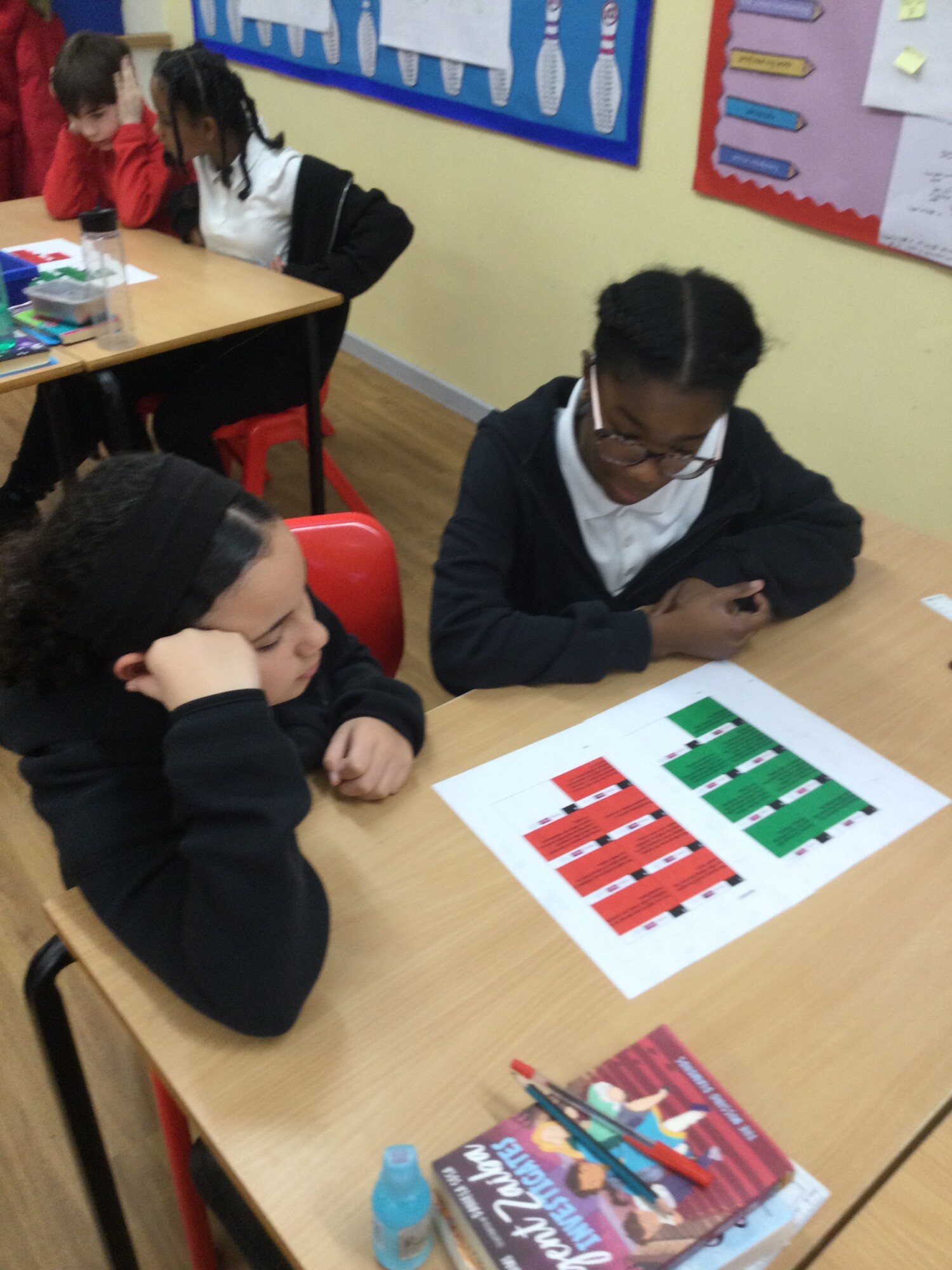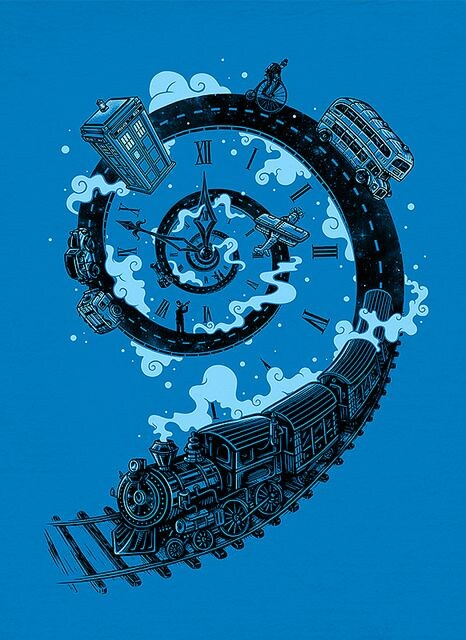Learning Hub
History
History at Bessemer
Our history curriculum is creative, practical and supports children to be knowledgeable learners and active communicators.
The history curriculum has historical skills and factual knowledge at its core. It reflects the aims and content of the National Curriculum, at each key stage. This begins in the Early Years with the ‘Understanding the World’ strand of the EYFS framework. We want them to be able to recall this knowledge in order to show understanding of key features of a particular period, while making connections and comparisons between periods of history. Regular opportunities are given to children to revisit previous learning through termly learning reviews and quizzes. Children should build on key skills throughout their time at school, such as asking questions, using evidence to answer questions, and draw conclusions from primary and secondary source material. Throughout the history topics, children should have an understanding of how historians know about and debate the past.
We support understanding of chronology through timelines which are displayed around the school. This supports children to make connections with previous history learning.
Trips, Visits, Workshops and Immersive Experiences in History
We use a variety of trips and visits to enhance and complement history learning at Bessemer. In Year 1 children go on local walks as part of their local history unit, when learning about the 'First Flight' children will visit the Science Museum. Year 2 visit monument as part of 'Great fire of London' and enjoy a workshop.
When exploring changes from the Stone to Iron age, Year 3 visit the amazing Prehistoric village in Hertfordshire, visit the Petrie Museum and enjoy an Ancient Egypt workshop! Year 4 mapped the impact of WW2 on Camberwell and Dulwich and went on a walk to see in person how the area changed as a result of the war.
As part of their Victorians unit, Year 5 attended a workshop run by the National Archives where they used secondary sources to look at Black Victorians. When learning about the Romans, Year 5 enjoyed a visit from Centurion who taught them all about life in Roman times. Year 6 will be visiting the Old Operating Theatre as part of their History of Medicine unit.
Here is just a snippet of some of the things we have been lucky enough to experience!
BLACK HISTORY MONTH
At Bessemer, we learn about Black history throughout our curriculum, however we also love to celebrate it during Black History Month in October! Have a look at our learning, from Nursery to Year 6, during the month of October...
EARLY YEARS
Although History is not discretely taught in the Early Years, historical knowledge is developed with the ‘Understanding the World’ strand of the EYFS framework. Our children start to recall past facts and features relating to a particular period, while making connections and comparisons between periods of history.
Reception children learn about dinosaurs and enjoy finding out what life would have been like during pre-historic times. Have a look at our pupils becoming archaeologists to learn more about the fossils in the sand!
YEAR 1
Year 1 link their history understanding to our local area, starting by finding out why our school is named after Henry Bessemer. Do you know who he was and why he was famous? They learn lots of amazing facts about our local area and discovered what used to be on this land before it was our school!
While also developing their geographical skills, Year 1 tour the local area (armed with maps!) to spot the differences between what it would have been like in the past compared to today. They learn about the Great Exhibition and The Crystal Palace. They even visit Crystal Palace park to see the dinosaurs and some of the remains of the Crystal Palace!
YEAR 2
In Year 2, our children learn about the lives and work of a number of inspirational women from across the globe. They consider how women broke barriers to achieve their dreams and to inspire others. The unit begins by looking at three famous nurses: Edith Cavell, Mary Seacole and Florence Nightingale. The children compare their working lives and the treatments they received by the public. As part of their learning, they take part in a drama workshop with ‘Teach It Thru Drama’ and transport themselves back to the battlefields during war time. They also look at the lives of women who were part of the Suffragette movement and even make their our own ballot boxes which EVERYBODY can cast their vote into.
YEAR 3
One of Year 3's History topics is Ancient Egypt. The children learn about hieroglyphics and the role of Scribes, the importance of Cleopatra as female Pharaoh, societal structure in ancient Egypt and the amazing feat of building the pyramids. They enjoy a range of creative and explorative activities, which they then apply to their end of unit 'topic write'. They also have a fantastic time when visiting the British Museum to see the incredible Ancient Egyptian artefacts. Have a look at some of our Year 3 children's depictions of Ancient Egyptian life.
YEAR 4
Year 4 learn about World War Two and specifically what London would have been like during the war. They explore using primary and secondary sources, workshops and trips, but also use our brilliant interactive 'Now Press Play' experience where they can re-imagine WW2 using headphones while engaging in a story about life during 1914.
The children also find out more from London's many museums, including the Museum of London and its live streams.
YEAR 5
One of Year 5’s History topics focuses on the arrival and settlement of the Anglo Saxons in Britain. The children look at the social hierarchy, religion, settlement types and artefacts of the Anglo Saxons. These are then compared with that of the Vikings - do you know any similarities and differences between the settlement types?
YEAR 6
In Year 6, the children compare two ancient civilisations: Ancient Greece and Ancient Maya. They consider how they changed our world, what the Maya city states looked like, as well as the legacies that the Ancient Greeks left us. The civilisations were compared and contrasted, with the units culminating in learning about the decline of the civilisations.
Time Travellers Club:
'Time Travellers' is an extra-curricular club where children get to explore areas of history that we might not cover across our curriculum as well as enhance areas of history learning that we want to explore further. Learning is child-led with lots of opportunities to pursue own interests in history. Talk, discussion and debate are an important part of our sessions.
Children have lots of opportunity to use the History book library so that they can continue their learning at home.
This term (Autumn 2023), we are lucky enough to be working with local historians to investigate the history of Southwark, where we will handle artefacts and look at a variety of Primary and Secondary sources.
In the past, we have learned about the Indus Valley civilisation, created Victorian thaumatropes, made, created and played our own history quizzes and learned about the history of chocolate!
Developing as historians at Bessemer
Intent
Using the national curriculum, as well as what we think are the most relevant topics for our school community, the curriculum at Bessemer travels from prehistoric societies through to the modern age, with many stops along the way. Our ambitious approach to the study of history is underpinned by our school values. Through careful consideration of the interests of our children and the use of local history studies, the objective is to feel more connected to our community both past and present. Our sequence of learning enables our children to gain a coherent understanding of their past, Britain’s past history and that of the world around them. Our curriculum has been designed to ensure that each year, our children broaden their historical knowledge. This enables them to secure a deep understanding of key developments and periods in history whilst exploring it in creative and interactive ways.
Our children are encouraged to question and analyse; to consider the evidence and its source; to think critically and reflect upon the process of change. Special emphasis is placed on the legacy of groups and individuals and the diversity of societies. The goal is for the children to ultimately understand how the present is informed by the actions and decisions of the past, and that how we live now will determine the outcomes of the future. Our curriculum aims to ensure that all of our pupils feel reflected and included in our history curriculum and feel a sense of belonging and identity in the UK.
Implementation
Fundamental to the teaching and learning of history is the attainment of key historical knowledge and a secure understanding of chronology. Underpinned by the objectives and outcomes of the National Curriculum, history is planned alongside our progression of knowledge and skills document.
Across the phases, our children study history in half-term blocks. We approach lessons creatively, ensuring the children not only build upon their historical knowledge, but are given the opportunity to make connections and develop their skills through analysis. Sequences of learning ensure that each lesson builds upon the last.
Key threads reoccur across our coverage of history including Society, Peace and Conflict, Migration and Settlement. These weave through our different topics and areas of study. To complement the history curriculum, key texts are frequently used in English to provide context and enhance the historical period being explored.
The Early Years Foundation Stage follows the ‘Development Matters in the EYFS’ guidance, which states that all children should have an ‘Understanding of the World; people and communities, the world and technology’ by the time that they leave reception. Topics have been selected to include historical themes and provide a foundation for later historical learning. Children are provided with opportunities to explore artefacts from the past, read books and learn stories from history and interact with ‘long standing’ members of the community.
We strive to find every opportunity to continue our learning outside of the classroom, drawing on the wealth of historical trip opportunities we have here in London. This includes ensuring visits to historical sites, museums and specialist visits. An extra-curricular ‘time travellers’ history club runs throughout the spring term for children who want to further pursue their passion for history.
Impact
At Bessemer, we measure progress by assessing the advancement of knowledge and skills; of each child’s developing ability to discuss history and historical concepts, identify links, influences or processes of change and to compare and contrast.
Opportunities for frequent oral and written recall of learned knowledge happen throughout each unit. Practical and creative learning leads to a written outcome, which assesses children’s understanding, progress of knowledge and concepts covered.
We want children to approach learning from a critical viewpoint and be given opportunities to empathise. This will enable them to understand the different individuals and groups of people who experience historical periods in markedly different ways. Whether it be through history, geography, science or art, class or school assemblies, celebrations, days of remembrance; history is woven into every facet of our learning and recognised as a very real part of not only who we are, but where we are going.
Websites that you can look at to further explore more history!
http://horrible-histories.co.uk/
https://www.bbc.co.uk/bitesize/subjects/zcw76sg
http://bombsight.org/#15/51.5050/-0.0900
http://www.history.com/this-day-in-history
http://geacron.com/home-en/?&sid=GeaCron520738
British History Videos:
https://www.bbc.co.uk/teach/ks2-history/zfbwhbk
